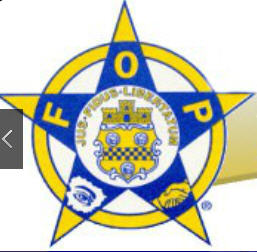 Every so often, the New To Seattle world headquarters gets a query about a nonprofit that hasn’t yet called to ask for money. This latest question came from someone in the Seattle area asking about the Washington State Fraternal Order of Police, which had made a pitch for a contribution. “What is your opinion of these folks?” the email said. “I have given before, but your comments on this type of subject makes me ask.”
Every so often, the New To Seattle world headquarters gets a query about a nonprofit that hasn’t yet called to ask for money. This latest question came from someone in the Seattle area asking about the Washington State Fraternal Order of Police, which had made a pitch for a contribution. “What is your opinion of these folks?” the email said. “I have given before, but your comments on this type of subject makes me ask.”
After looking at its most recent filings with regulators, for 2013, I have formed an opinion. It isn’t great, although I’ve seen worse in the law enforcement realm.
Some 62% of the money donated by Washingtonians like my correspondent went not for any police purpose at all but to a telemarketing fundraiser based in the Salt Lake City suburb of Murray. That made for a fundraising efficiency ratio–the amount of donations remaining after the cost of generating them–of just 38%. Charity watchdogs say 65% should be the minimum.
But then again, the Washington State FOP is not really a traditional charity, although some of its donors might think so. It is a fraternal organization, there mainly to benefit its members–here, cops. “One voice for law enforcement in Washington,” its website proclaims. Indeed, among the activities listed in the mission statement on its IRS 990 filing: “to support the improvement of the standard of living and working conditions of the law enforcement profession through every legal and ethical means available.”
The Washington State FOP, whose official name is Washington State Lodge Fraternal Order of Police, is part of a network of 2,100 FOP units at the local, state and national level across the country.
According to that IRS filing, the Washington State FOP received $175,000 in donations, collected $62,000 in fees from its chapters across the state and another $4,000 in insurance commissions (yes, an affiliate sells insurance), for total revenue of $241,000.
Of the $210,000 in listed expenses, the nonprofit spent what looks to me like no more than $75,000 toward its stated mission–such as training sessions, conferences and lobbying lawmakers for better benefits and laws. Some $109,000 went to the fundraiser, Corporations for Character. The rest went for overhead. About $30,000 was banked.
Although it’s an imprecise calculation, were the Washington State FOP a genuine charity, I’d figure its charitable commitment–the percent of total expenses spent in direct furtherance of the stated mission–at no higher than 36%, and maybe a lot less. Again, charity watchdogs set 65% as the minimum for regular charities.
I noted earlier that I’ve seen worse among law enforcement groups that hold themselves out as charitable. Public Service Employees Union 519 here in Seattle solicits for a kids ID card program under the trade name King County Police Union although very few of its members are sworn police officers. By my figuring, only about 15% of the money raised went for cards.
The National Police and Trooper Association, a trade name of the International Union of Police Associations, AFL-CIO, a labor union, gave its outside fundraiser 94% of the money raised, and spent only 0.5% of the money raised on what I consider a proper charitable purpose. Less than 4% of what the Washington State Law Enforcement Association raised in a recent year went toward its written mission of helping law enforcement, mainly because 83% went to the paid telemarketer.
I have asked the Washington State FOP through its website for comment and will update this if I hear back. But like that old saying goes, while facts are sacred, opinions are free. And I’m certainly free with mine.
